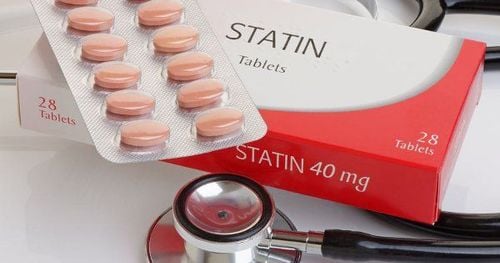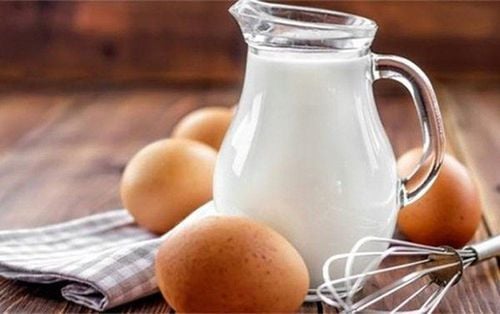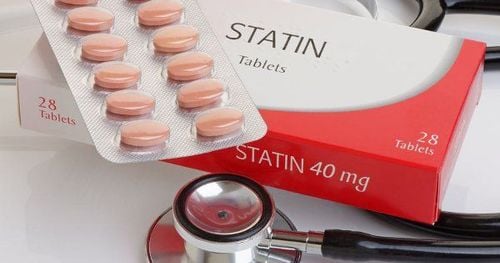This is an automatically translated article.
Eggs are one of the foods that contain a lot of cholesterol and are often used every day. The use of too many eggs was previously considered a cause of high cholesterol. However, the more cholesterol you eat, the less cholesterol your body tends to produce. For this reason, eating a few eggs won't raise cholesterol levels as ominously as you might think. This article explains the process and discusses how many eggs you can safely eat each day.
1. What is cholesterol?
Cholesterol is a fatty substance called a lipid (fat) and is important for the normal functioning of the body. Cholesterol is carried in the blood by proteins, and when the two combine they are called lipoproteins. Lipoproteins are of two main types: LDL cholesterol and HDL cholesterol.
Cholesterol comes from two sources. The first source is the liver, which makes all the cholesterol you need. The rest comes from foods of animal origin, such as red meat, poultry and full-fat dairy products... all of which contain cholesterol.
Foods that are high in saturated fat and trans fat also cause the liver to make more cholesterol than it needs. For some people, this extra production raises blood cholesterol levels, leading to dangerous complications. Certain tropical oils — like palm oil, palm kernel oil, and coconut oil — can also trigger the liver to make more cholesterol.
If cholesterol levels rise to too high a level in the blood (hyperlipidemia) it can affect the health of the body. High cholesterol itself does not cause any symptoms, but it is a condition that increases the risk of heart attack, stroke, or peripheral artery disease. Increased cholesterol will increase the risk of atherosclerotic complications due to the accumulation of too much cholesterol in the artery walls.
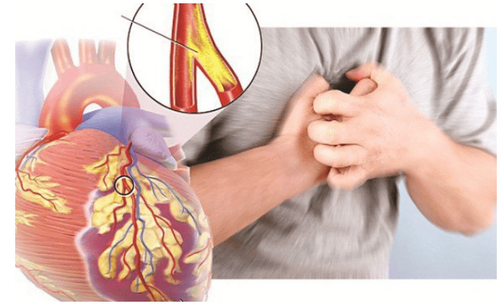
Cholesterol tăng quá cao gây ra nguy cơ mắc các biến chứng xơ vữa động mạch
2. How your body regulates cholesterol levels
In fact, the whole egg contains all the nutrients needed to turn a single embryonic cell into an entire adult chicken. However, eggs are known for their bad properties because the yolk contains a lot of cholesterol. But cholesterol levels aren't simply inferred in such a way that can be harmful to health.
Cholesterol is often viewed as an unhealthy substance. This is because a number of studies have demonstrated a strong link between cholesterol and cardiovascular disease and early mortality. However, the evidence is controversial about cholesterol.
The truth is that cholesterol plays a very important function in your body. It is a structural molecule necessary for all cell membranes in the body. It is also used to make steroid hormones such as testosterone, estrogen, and cortisol. These are hormones that play an extremely important role in the body.
With cholesterol levels so important, your body has evolved in complex ways to ensure that cholesterol levels are always adequate. Since dietary cholesterol isn't always sufficient, your liver will have to produce enough to meet your body's needs.
But when you eat more cholesterol-rich foods, your liver starts to produce less to keep cholesterol levels from becoming too high.
Therefore, the total amount of cholesterol in your body changes only very little, if any. There are two main factors that contribute to these changes, including diet and the liver's ability to produce cholesterol.
However, you should still avoid eating too much cholesterol if your blood levels are elevated. Eating a lot of foods that contain cholesterol can increase blood cholesterol levels moderately.
In a nutshell, your liver is a factory capable of producing large amounts of cholesterol. When you eat cholesterol-rich foods like eggs, your liver compensates by reducing the production of these substances to regulate the balance of cholesterol levels in the blood.
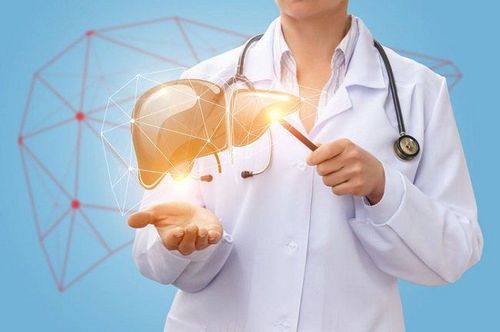
Gan có khả năng sản xuất và điều chỉnh sự cân bằng nồng độ cholesterol trong máu
3. What happens when people eat more eggs every day?
For decades, people have been advised to limit their intake of eggs - or at least egg yolks. One medium-sized egg contains 186 mg of cholesterol, which is 62% of the recommended daily intake (RDI). In contrast, whites are mostly protein and contain little cholesterol.
Common recommendations include eating no more than 2–6 yolks per week. However, there is a lack of scientific evidence for this limitation.
Several studies have examined the effects of eggs on cholesterol levels. These studies divided people into two groups - one group ate 1-3 whole eggs per day while the other ate other foods, such as egg substitutes. These studies show that:
In most cases, "good" HDL cholesterol is elevated.
Levels of total LDL cholesterol and “bad” cholesterol are usually unchanged but sometimes slightly increased.
Eating eggs rich in omega-3 can lower blood triglyceride levels, another important risk factor for cardiovascular disease.
Levels of carotenoid antioxidants in the blood such as lutein and zeaxanthin increased significantly.
It seems that the response to eating whole eggs depends on the individual. In 70% of people, eggs have no effect on total LDL cholesterol or “bad” cholesterol. However, in 30% of people - so-called super-reacters - these markers increase slightly.
Although eating a few eggs a day can raise blood cholesterol in some people, they change the "bad" LDL particles from small and dense to large.
People with predominantly large LDL particles have a lower risk of heart disease. So even if eggs do slightly raise total and LDL cholesterol levels, it's not a cause for concern for cardiovascular disease.
Scientific evidence clearly shows that eating up to 3 eggs a day is completely safe for healthy people. Regular eggs increase HDL ("good" cholesterol). For 70% of people, there was no increase in total cholesterol or LDL cholesterol. Some people may have a mild elevation of a benign subtype of LDL.

Ăn trứng thường xuyên làm tăng cholesterol "tốt" trong cơ thể
4. Eggs and heart disease
Many studies have examined egg consumption and the risk of heart disease. Many of these studies are observational studies in which large groups of people are followed for many years.
The researchers then use statistical methods to determine whether certain habits - like dieting, smoking or exercising - are associated with a reduced or increased risk of certain diseases or not.
These studies - some including hundreds of thousands of people - consistently show that people who eat whole eggs are not more likely to develop heart disease than those who don't.
Some studies have even shown a reduced risk of stroke for groups that consume eggs daily. However, this study shows that people with type 2 diabetes and eating a lot of eggs have an increased risk of heart disease.
A controlled study in people with type 2 diabetes found that eating two eggs per day, six days a week, for three months did not significantly affect blood lipid levels.
Effects on health may also depend on the rest of your diet. According to a low-carb diet, which is the best diet for people with diabetes, eggs will help improve heart disease risk factors.
Many observational studies show that people who eat eggs do not have an increased risk of heart disease, but some studies show an increased risk for people with type 2 diabetes.
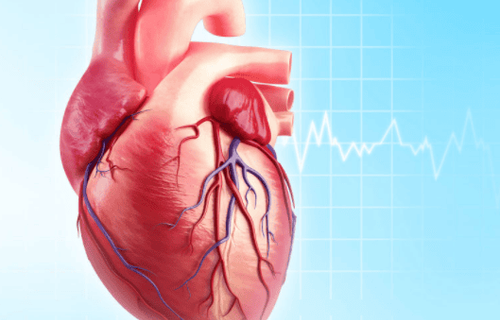
Trứng sẽ giúp cải thiện các yếu tố nguy cơ bệnh tim khi ăn theo chế độ low-carb
5. Eggs Have Several Other Health Benefits
Don't forget that eggs are not only high in cholesterol. They are also packed with nutrients and offer many other impressive benefits:
They are high in lutein and zeaxanthin, antioxidants that help reduce the risk of eye diseases like macular degeneration and cataracts. They contain a lot of choline, a nutrient that plays an essential role in all cells. They are packed with quality animal protein, the benefits of which include increased muscle mass and better bone health. Studies show that eggs increase satiety and help you lose weight. Moreover, eggs are delicious and extremely easy to prepare. The benefits of consuming eggs far outweigh their potential risks. Eggs are one of the most nutritious foods on the planet. They contain important brain nutrients and powerful antioxidants that help protect your eyes.
6. How many eggs are you eating too much?
Unfortunately, there are no studies that let people eat more than three eggs per day. However, eating more than that can negatively affect your health. Scientifically speaking, consuming more than three is the untapped portion.

Nghiên cứu cho thấy người khỏe mạnh có thể ăn tối đa 3 quả trứng mỗi ngày
However, one case study included an 88-year-old man who ate 25 eggs per day. He has normal cholesterol levels and is in very good health.
Of course, how an individual responds to excessive egg consumption cannot be extrapolated to the entire population, but it is still very interesting. It is important to note that not all eggs are created equal. Most eggs at the supermarket come from factory-raised chickens that are fed grain-based feed.
The healthiest eggs are those rich in omega-3s or eggs from pasture-raised hens. These eggs are high in omega-3s and important fat-soluble vitamins. In general, eating eggs is completely safe, even if you eat up to 3 eggs a day.
With many nutrients and powerful health benefits, quality eggs may be one of the healthiest foods on the planet.
If you have a need for consultation and examination at Vinmec Hospitals under the nationwide health system, please book an appointment on the website for service.
Please dial HOTLINE for more information or register for an appointment HERE. Download MyVinmec app to make appointments faster and to manage your bookings easily.
Reference source: healthline.com
See more:
5 surprising facts about cholesterol Does eating a lot of eggs increase cholesterol? Why does cholesterol increase when you have diabetes?




